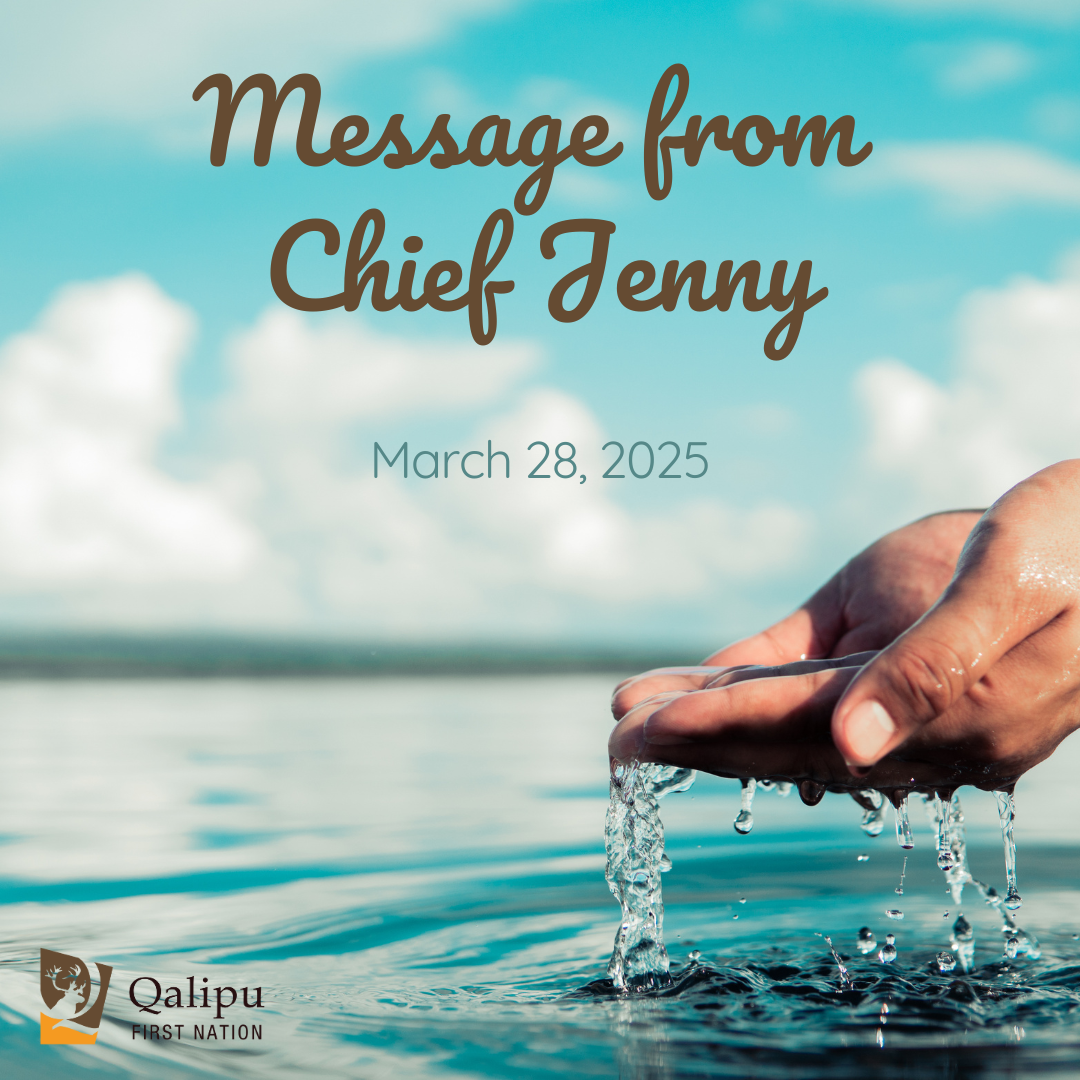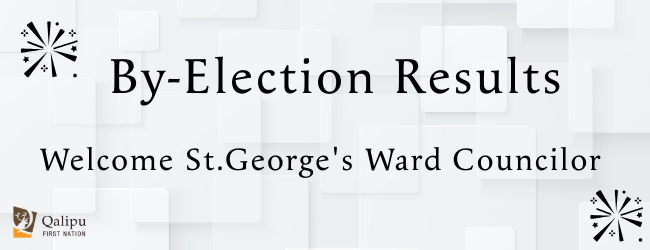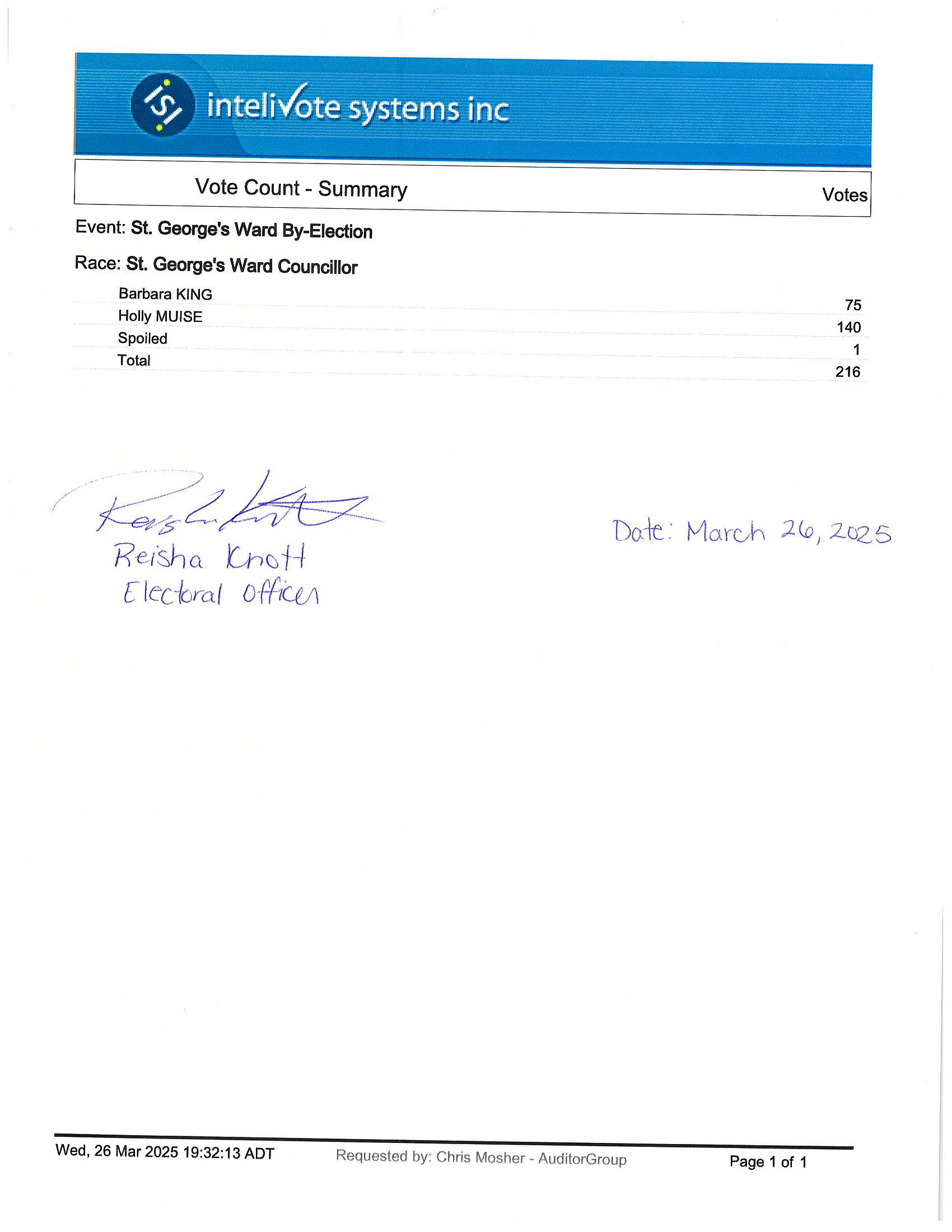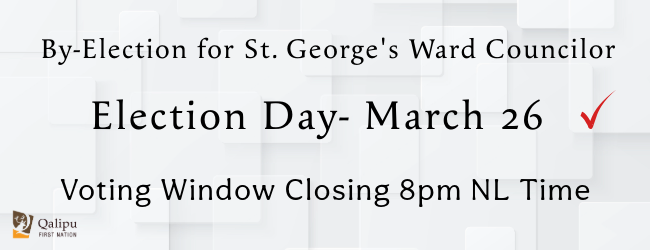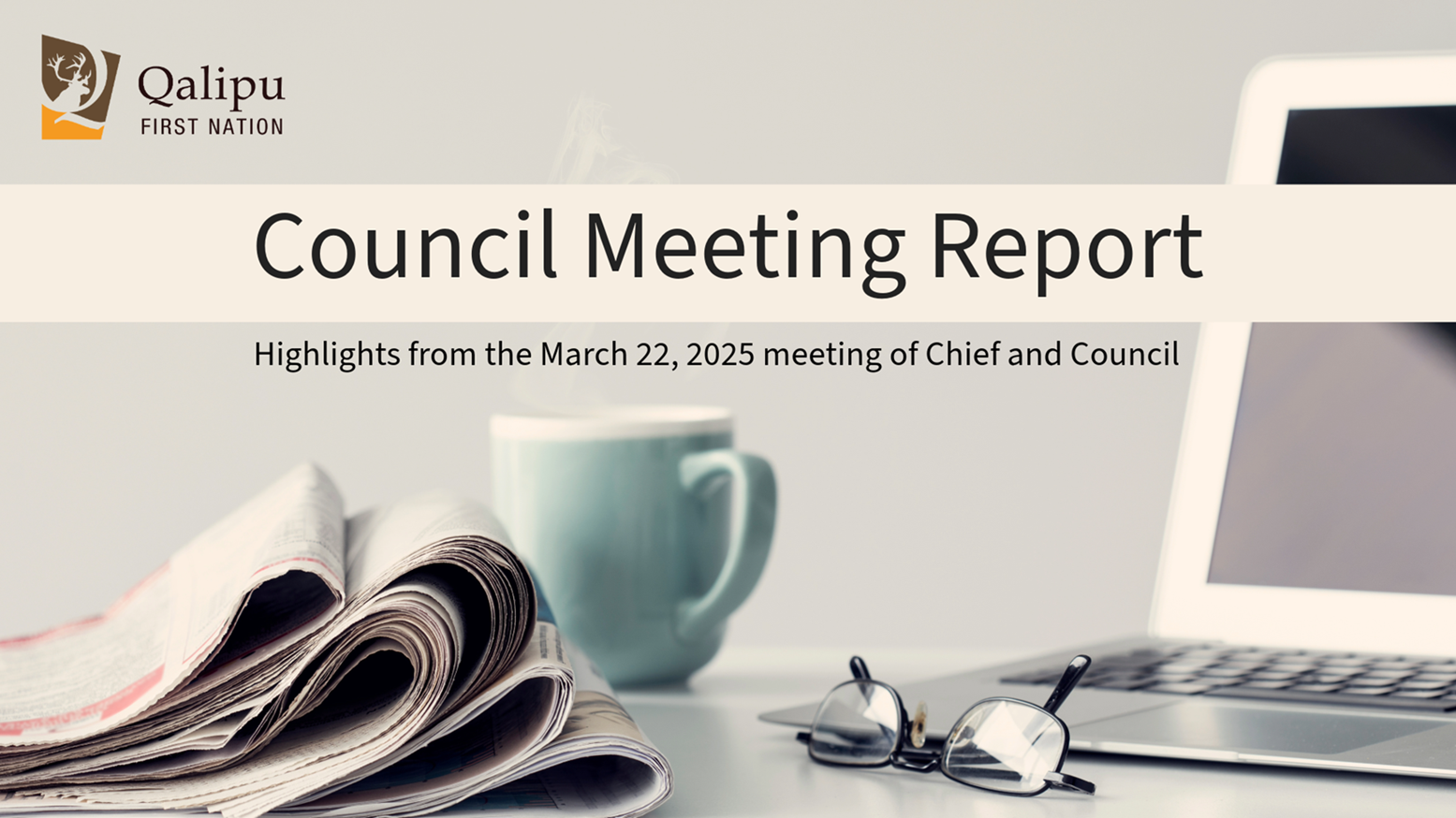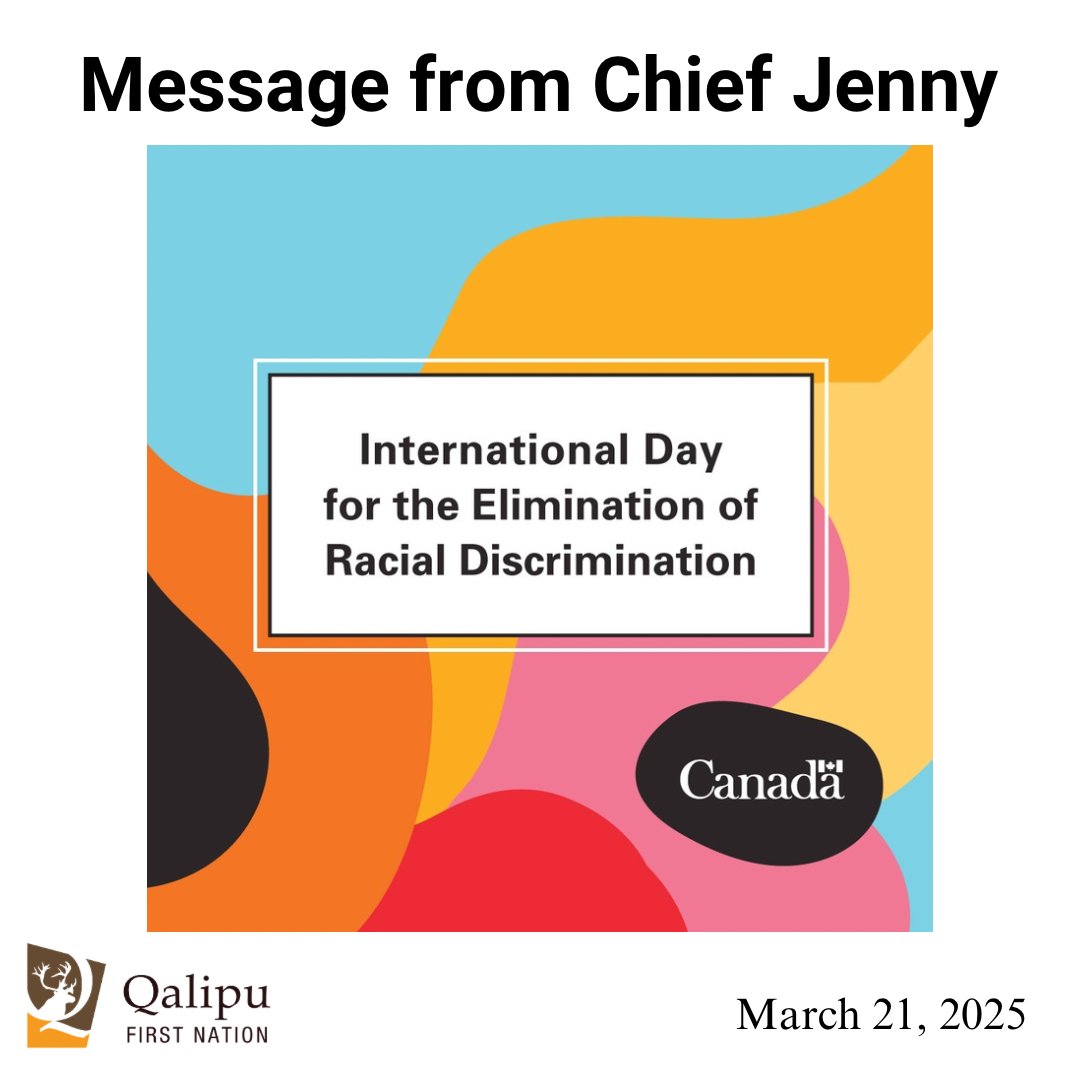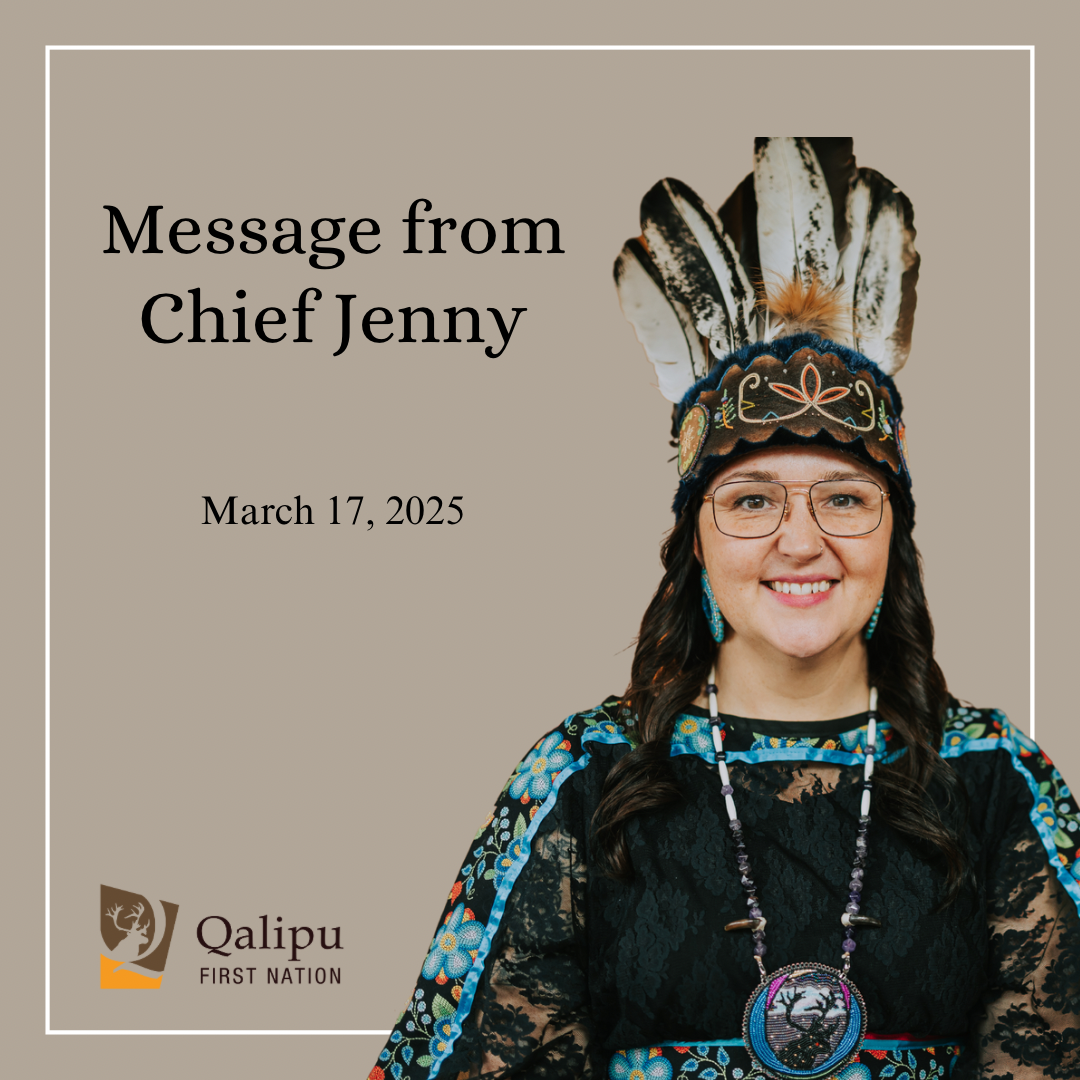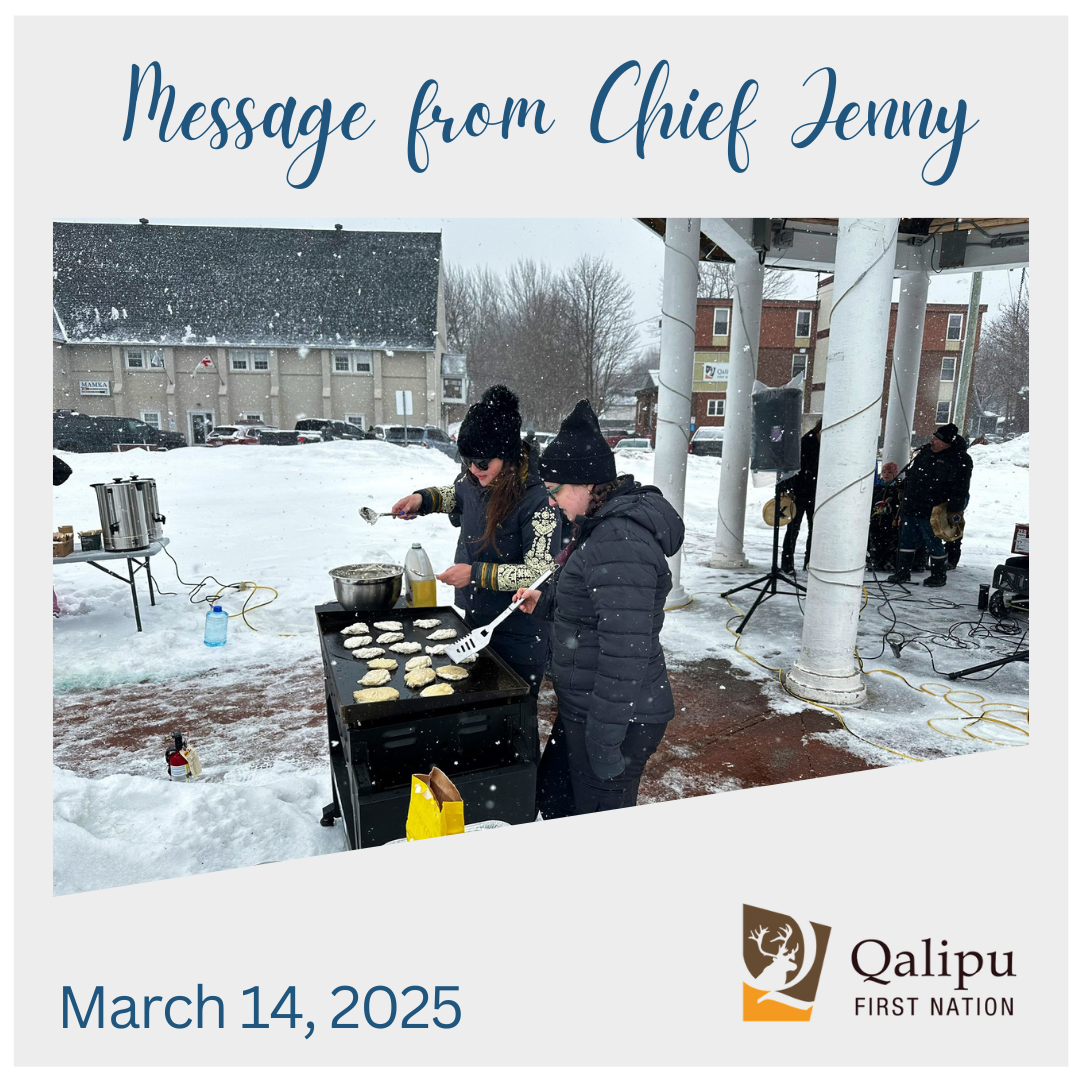March 22nd was observed as World Water Day, a day to reflect on the sacredness of water, and to raise awareness about issues that impact our waters. As Mi’kmaq people, we have always understood that water is not just a resource, it is a part of all our relations, deserving of our protection and respect.
While we recognize the vital role water plays, we also acknowledge the harsh reality that many First Nations across the country, including many of our own communities, struggle for access to clean drinking water. Boil water advisories remain a common occurrence, and far too many communities continue to live without the basic right of safe, reliable water. This is unacceptable. Access to clean water is a fundamental human right, and we must continue to advocate for long-term solutions to these issues.
Here in Ktaqmkuk, Qalipu First Nation is working diligently to uphold our responsibility as stewards of the land and water. Our Environment and Natural Resources Department plays a crucial role in monitoring and protecting local ecosystems through our Land and Water Monitor programs, as well as monitoring industry development to ensure that our waterways remain healthy for future generations.
Additionally, through MAMKA, a joint marine research initiative between Qalipu First Nation and our sister Nation, Miawpukek First Nation in Conne River, we are strengthening Indigenous-led environmental stewardship. This is done by combining traditional Mi’kmaq knowledge with modern scientific research, we are working to better understand and protect the marine ecosystems that sustain our communities. This partnership is an example of what we can achieve when we come together to care for our shared waters.
On this day, we encourage all our members to reflect on their connection to water, because water gives us life and sustains us. We must continue to advocate for its protection and support ongoing efforts to ensure clean and safe drinking water for all beings. Let us continue to honour our responsibilities as stewards of our water and stand in solidarity with First Nations still fighting for this basic right.
Relevant Links:
MAMKA: https://aarom.ca/aarom-department-profiles/mikmaq-alsumk-mowimsikik-koqoey-association/
AFN National Climate Strategy: https://afn.ca/environment/national-climate-strategy/

